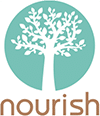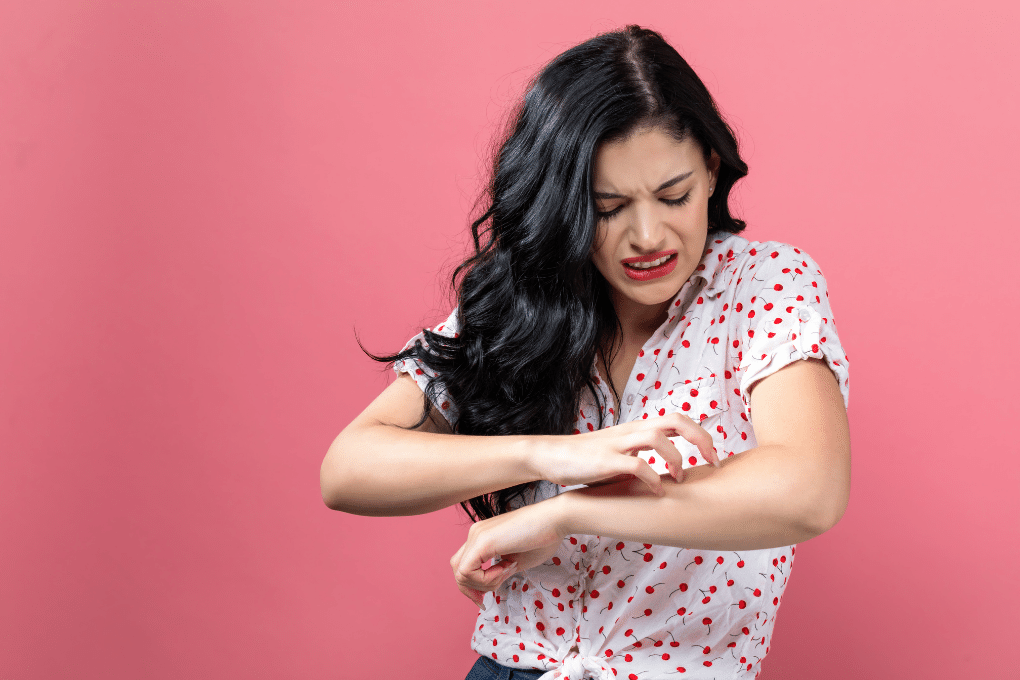Gut Health, Family Health, Nutrition
6 holistic approaches for treating eczema in children and adults
Eczema is a bothersome skin condition that can occur at all ages from babies through to adulthood. The cause of eczema is not fully understood however we do know that it is related to an overactive immune system and may be linked to the gut flora. There are also some genetic links, as a person’s chances of developing eczema is increased if a parent or sibling has it. A holistic approach is one of the best ways of treating eczema.
The condition is generally characterised by dry, itchy and flaky skin. When someone is having a bad flare-up it may appear very red, sore, and inflamed and they may even have little itchy blisters on the skin. In some cases, a secondary bacterial infection can also develop and would generally require prescription treatment to heal.
Eczema can appear in many different forms and symptoms usually look differently depending on age. In babies and young children, it more commonly develops in the creases behind the knees and elbows. In adults we may see it more commonly as fluid-filled blisters on the fingers, hands and feet – this condition is known as dyshidrotic eczema.
So what are the best treatments of eczema, what are the triggers, and what foods should you avoid? In this blog, we will look at the best natural remedies for preventing and treating eczema.
Best methods for treating eczema

1. Probiotics
Over the past 20 years numerous studies have looked at the effects of probiotics on the immune system. The original microbiota that inhabit our little tummies during our first years of life can significantly impact our immune responses in the future, particularly in relation to autoimmune conditions, eczema, and skin allergies. This is why it’s important we kick things off on the right foot and start cultivating a strong gut defence system right from birth.
The development of the infant’s microbiota depends on various factors including whether they are delivered vaginally or via caesarean, if the baby is breastfed or not, and whether they have been exposed to antibiotics. Many studies have also looked at the use of probiotics in the first few years of life to help reduce the child’s risk of developing eczema and for use in treating eczema.
Some strains of probiotics such as Lactobacillus rhamnosus (LGG) have been shown to help downplay excessive inflammatory responses which is often seen in eczema. Other studies have looked at a mix of probiotic strains and how this could impact allergy responses. There is some evidence to show that Bifidobacterium bifidum, B. lactis, and Lactobacillus acidophilus could possibly reduce the prevalence of eczema in infants during the first 2 years of life.

2. Use creams and washes specific for eczema
It is recommended to avoid using creams and washes that may have allergens within them such as perfumes, some essential oils, and retinoids. These ingredients are found in lots of skin creams and washes so it’s important to use products that are specific for skin sensitivities. We would also suggest avoiding using soap as this can alter your skin’s pH (acidity level) and cause irritation and dryness.
We would recommend using trusted skincare ranges that have been dermatologically tested and approved for use in treating eczema such as Ego’s QV range, Dermaveen or Moogoo, just to name a few.
It is worth noting that alcohols, propylene glycol, and lanolin have also been shown to trigger eczema in some people. These ingredients are actually commonly used in even dermatologically tested products. If you or your child are still getting flare ups despite using the ‘right’ products, it might be worth looking into whether these ingredients are the potential cause.
Beneficial ingredients for eczema flare ups include licorice, enoxolone, chamomile and lactoferrin. These ingredients have some evidence showing they may help reduce inflammation, itchiness, and redness. Lactoferrin has also been shown to help heal wounds and prevent secondary infection with its antimicrobial effects.
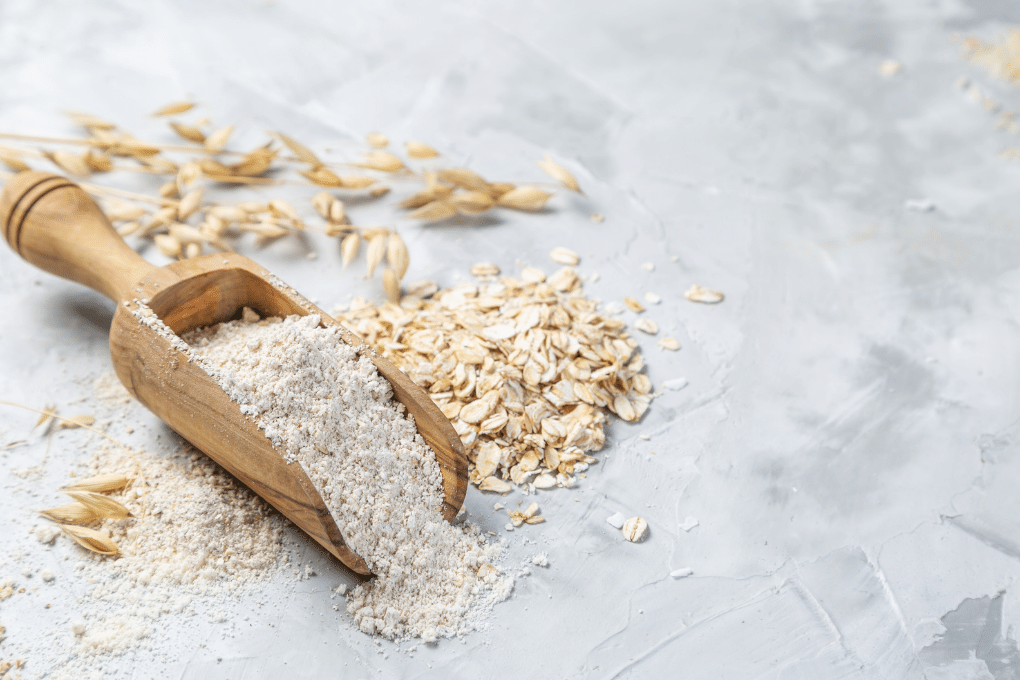
3. Avoid foods that can trigger eczema flare ups
Working out what foods are impacting you or your child’s eczema can be a tricky area. It generally requires either doing some allergy testing and potentially doing some diet elimination trials. With both of these we would recommend doing it with the assistance of a nutritionist / dietician or someone who specialises in the area, particularly with elimination diets.
A low antigenic diet may be prescribed by your nutritionist or doctor for some older age groups. This generally requires avoiding certain foods for a period of time to allow the gut to heal. This includes eliminating gluten, dairy, soy and any other identified or suspected allergenic foods. It also might mean no tea, coffee, alcohol, sugar, or artificial colours/flavours/sweeteners.
In babies however it is NOT recommended to cut out food groups to prevent allergies. In fact, all infants should be given allergenic solid foods in the first year of life. This includes nut butters, cooked egg, dairy and wheat products. This even includes infants at high risk of allergy. If your family has a history of anaphylaxis to certain foods and you are nervous about introducing this food to your baby, you could always do it in the presence of your child health nurse or doctor.
During times of an eczema flare up it could be beneficial to also avoid heat-causing foods and beverages such as alcohol, lamb, chocolate, and mango.
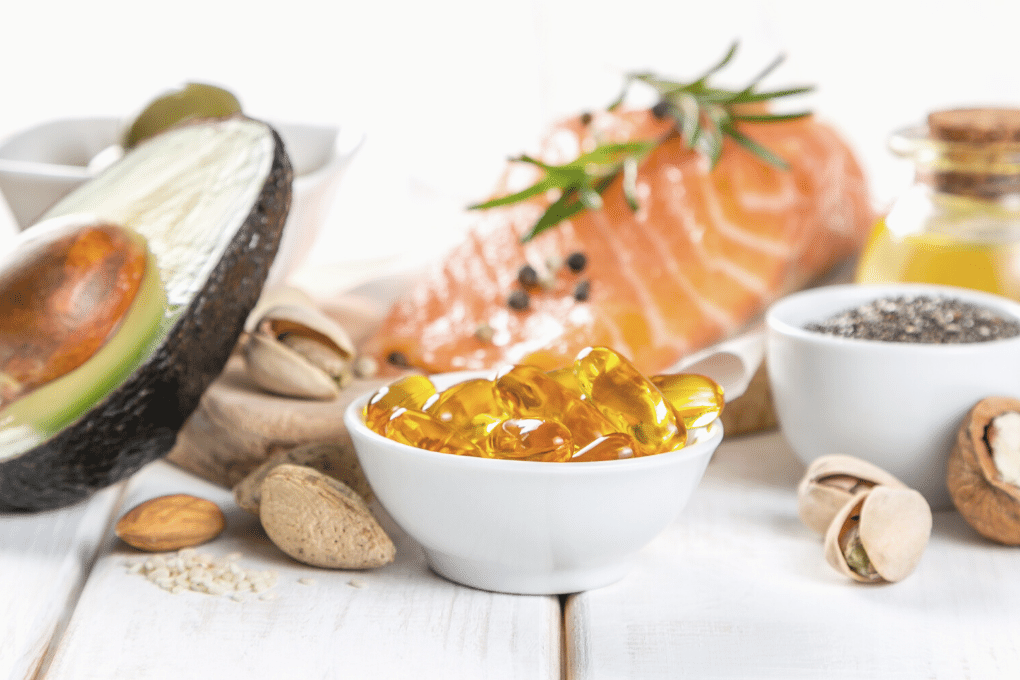
4. Increase foods beneficial for treating eczema
Some of you may be wondering what foods you should eat more of to help manage eczema. The goal is to eat foods that help reduce inflammation in the body and that are nourishing for the gut lining. Nourishing the gut lining will help strengthen the guts defence system and prevent unwanted allergens passing through into the body and triggering an immune response (eczema flare up).
Foods to eat more of include foods high in:
- Omega-3 such as seafood, flaxseeds, chia seeds, and walnuts.
- B vitamins such brewer’s yeast, sunflower seeds, wheat germ, mushrooms, raw nuts, seeds, avocado, brussels sprouts, rye, legumes, soy, broccoli
- Vitamin A such as carrots, green leafy and yellow vegetables, dried apricots
- Vitamin E such as nuts, seeds, avocados, wheatgerm, tahini
- Zinc such as oysters, pumpkin seeds, sesame seeds, almonds, brown rice, oats
- Selenium such as seafood, nuts, grains, brazil nuts, wheat germ, garlic, onion
Please note some of these foods may not be appropriate for younger age groups.
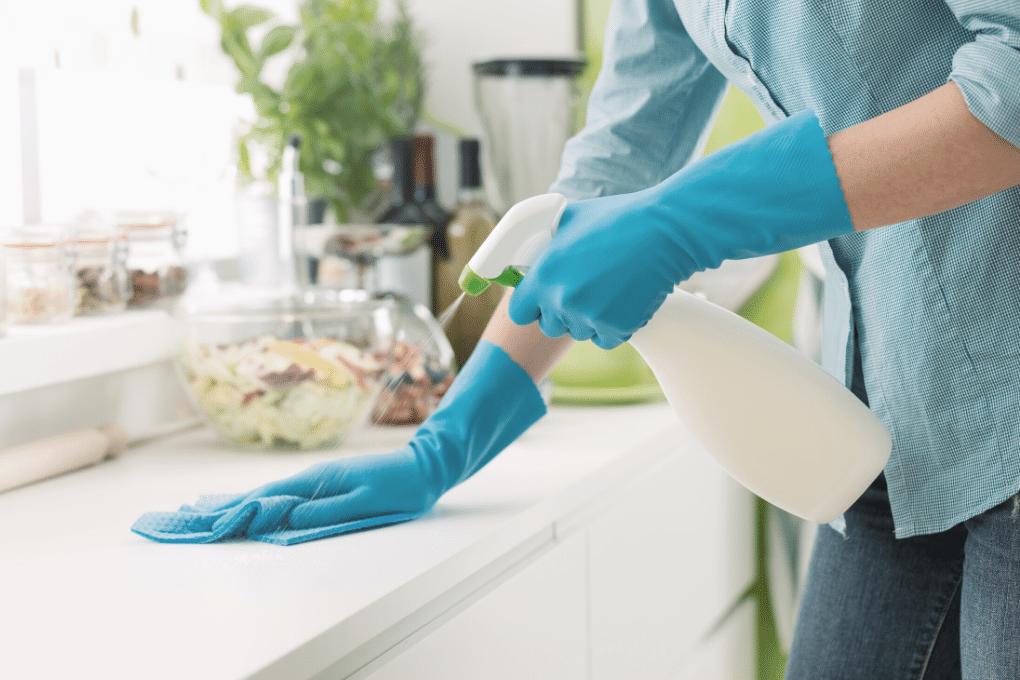
5. Avoid environmental triggers for eczema
There are a whole range of potential environmental or external triggers for eczema. Avoiding these triggers is an important component in treating eczema and include:
- Pollen and flower allergens – It is common for people who have eczema to also suffer from hayfever and/or asthma. If you or your child finds their eczema flares during allergy season it is recommended to minimise outdoor play during high pollen times and to shower after school or at the end of day to wash off allergens that may be sitting on the skin or clothing. An oral antihistamine may also be beneficial particularly to help settle itching.
- Clothing fabrics – It is recommended to avoid fabrics that may cause irritation for the eczema such as wool and polyester. It’s also best to avoid overheating so dressing in layers can help manage heat control as layers can be removed or added as needed.
- Detergents, chemicals and certain foods can be irritating to the skin especially on the hands. It is recommended to wear gloves when washing dishes, preparing food or handling chemicals.
- Chlorinated pools – It is recommended to apply a barrier cream before entering the pool and to rinse off well and moisturise after getting out.
- Some cosmetics, makeup, perfumes, shampoos and conditioners – It is recommended to keep the skin clean from cosmetics as much as possible, avoid any perfumes that may irritate and opt for dermatologically tested shampoos and conditions such as the QV range.

6. Manage itchiness and flare ups
Finally, here is a simple list of lifestyle measures that help both in preventing and treating eczema flare ups.
- Managing stress is really important to help prevent and reduce flare ups. It is particularly common to see dyshidrotic eczema in adults during times of stress.
- Apply a cool compress to the areas that are particularly inflamed and itchy.
- Wet wrap therapy can help during eczema flare-ups as it creates an intense moisturising effect to help rehydrate and calm the skin. Apply moisturising cream to the affected area, then apply a wet cloth wrap over that area and then a dry cloth over the top of that. This can be left on for several hours.
- Avoid hot showers and baths, instead aim for a lukewarm temperature. Too much heat can worsen inflammation at the affected site and cause more intense itching.
- After bathing, gently pat the skin dry with a clean towel. Try and avoid excessive rubbing. Then immediately apply dermatologically tested moisturising cream.
Conclusion
The overall goal with managing eczema is to reduce flare ups as much as possible and treat quickly at first signs of these flare ups. Most studies that look at preventing eczema have been carried out in children. There is increasing evidence to show that good gut flora from an early age could prevent eczema in the future. Those that have eczema as a teenager or adult may find improving their gut health may significantly help reduce flare ups.
Remember
This information is general only. Some of these methods may not be applicable to some age groups. Please check with your pharmacist or health practitioner before starting treatment to ensure it is right for your and your family.

Alexandra
Pharmacist
This blog post was written by Alexandra Shepherd, holistic pharmacist at Nourish Health.

